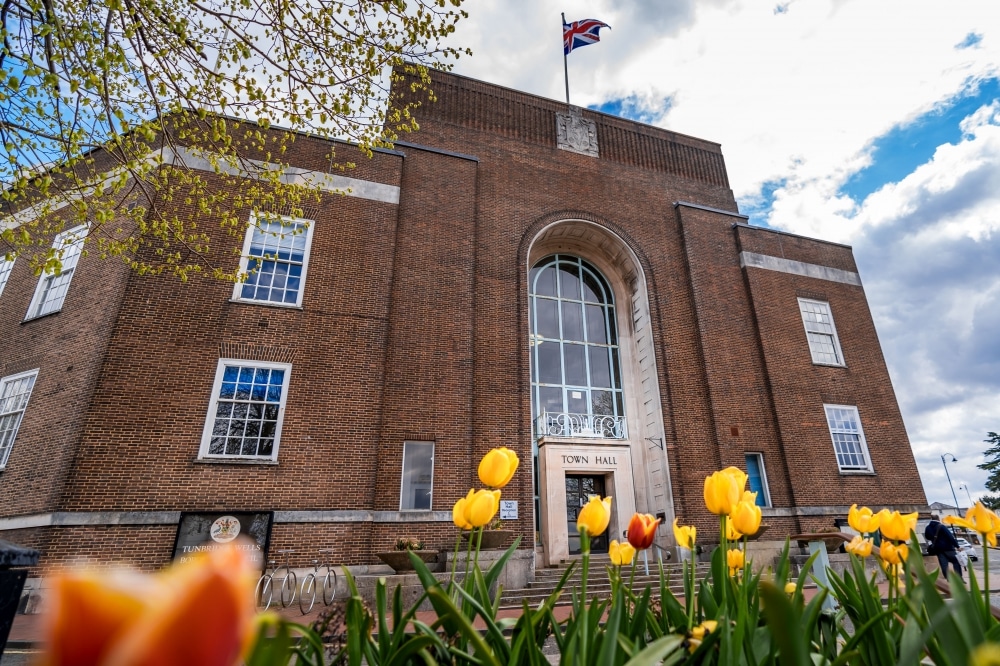Inflation this year has wiped out gains to Tunbridge Wells Borough Council’s budget, prompting the Cabinet to recommend raising Council tax and calling on reserves, but not cutting services – or at least not yet.
A 2.95 per cent Council tax increase from the start of the new financial year on April 1 would add £5.71 to the bill for a Band D property, the Cabinet confirmed late on Thursday (February 9).
Yet there would be ‘no major changes or cuts to services’ over the next financial year and the capital programme of investment in council assets was rolled over, with an additional £620,000 of gross funding for new schemes.
At the same time, Cabinet recommended taking £943,000 from reserves to balance the budget.
Presenting the report, Lee Colyer, the Council’s Director of Finance, Policy and Development, warned of future risks to the Borough’s finances.
Reiterating the report’s wording, he said: “The additional income from the in-year-budget review and investment decisions have in effect been wiped out by inflationary pressures on expenditure, leaving a near-identical deficit to the current year [2022/23].”
He also warned of a ‘widening’ gap between income – with increases largely capped at around 3 per cent – and rising expenditure.
This projected gap ‘widens considerably’ in the financial year 2027/28 thanks to contracts maturing and services needing to be procured in ‘an uncompetitive market’, he said.
Mr Colyer told Cabinet members: “This could result in needing to buy in an additional £2million for the waste contract, £200,000 for the grounds maintenance contract, and no longer receiving £290,000 worth of income as a management fee from the leisure contract
Pointing to ‘near-identical’ deficits in both 2022/23 and 2023/24, Mr Colyer said this indicated a persisting ‘residual structural deficit’ of approximately £1million after the pandemic.
“It [the Council] needs to eliminate this, as income is not sufficient to cover the cost of the current range of local services.”
And he stressed: “There are no capital receipts in progress, with which to help fund the capital programme.”
Capital funding had been taken out of business rate growth, but the reserves were shrinking, meaning the council needed a savings plan and a ‘steady supply of capital receipts’, he said.
Underlining the lack of leeway in future budgets, the financial report showed that the council was forecast to ‘breach’ the minimum level of reserves – set at £4million – between the financial year to March 31, 2026 and March 31, 2027.
But this level looked set to be ‘breached’ – as ‘the capital cost of the civic buildings, the multi-storey car parks, leisure centres and the crematorium will always require significant funding if they are to remain operational.’
Adopting the budget recommendations, Cabinet members issued a Borough Partnership statement revealing that they would seek to reduce the deficit according to principles such as preventative spending, making the user pay and exploring ways for others to provide facilities or services.
Increased Council Tax was the headline policy in last week’s recommended budget for 2023/24, which included a proposed 2.95 per cent increase in Council Tax, as well as boosting tax on second homes and unoccupied properties.
Tunbridge Wells Borough Council’s share of Council Tax income accounts for only a proportion of the total bill, with Kent County Council, the police and parish councils making up the rest of it.
The Levelling-Up and Regeneration Bill is currently at the committee stage in the House of Lords, but if it receives royal assent, councils would be allowed to charge a 100 per cent premium on second homes from April 1, 2024.
Council records showed there were currently 290 second homes – or ‘dwellings occupied periodically’ – in the Borough, which this double Council Tax bill would apply to.
Meanwhile, councils could charge also charge the same 100 per cent extra Council Tax on properties that have been empty for at least one year – instead of two years.
Council records showed there were currently 390 properties which had been ‘unoccupied’ between one and two years, on which the council could levy the double Council Tax bill.
WHAT RESIDENTS WANT
OVER 1,000 residents filled in the budget consultation this year, nearly four times more than the previous year.
The initiative allowed the public to look at the draft budget figures and fill in what they would prefer to spend – or save.
The survey received 1,160 responses in the six-week period, compared to 310 in the previous year’s consultation.
Although the Borough Partnership coalition decided not to make any ‘major cuts’ to services in 2023/24, the consultation did give a flavour of what might happen to services and facilities in future, if the budget is squeezed as projected.
The most valued statutory services – which must be provided by a local authority – were rubbish and recycling collections, followed by housing and homelessness and street cleaning services.
However, when the consultation asked residents to rank the amount of money spent on ‘discretionary’ services, the areas where they were most likely to reduce the budget were The Amelia Scott, property and development, and The Assembly Hall.
By contrast, respondents reallocated their hypothetical budget from other services to fund climate change initiatives.
Turning to Council income, responses showed the public suggested not increasing charges for parking and bereavement services, compared to the draft budget.
However, a majority of survey respondents (67 per cent) said they were not in favour of voluntary contributions to fund council services, with the top concern being ‘which services would it be spent on?’
Overall, the preferred option for budget savings was to increase fees and charges, on the ‘user pays’ principle.








